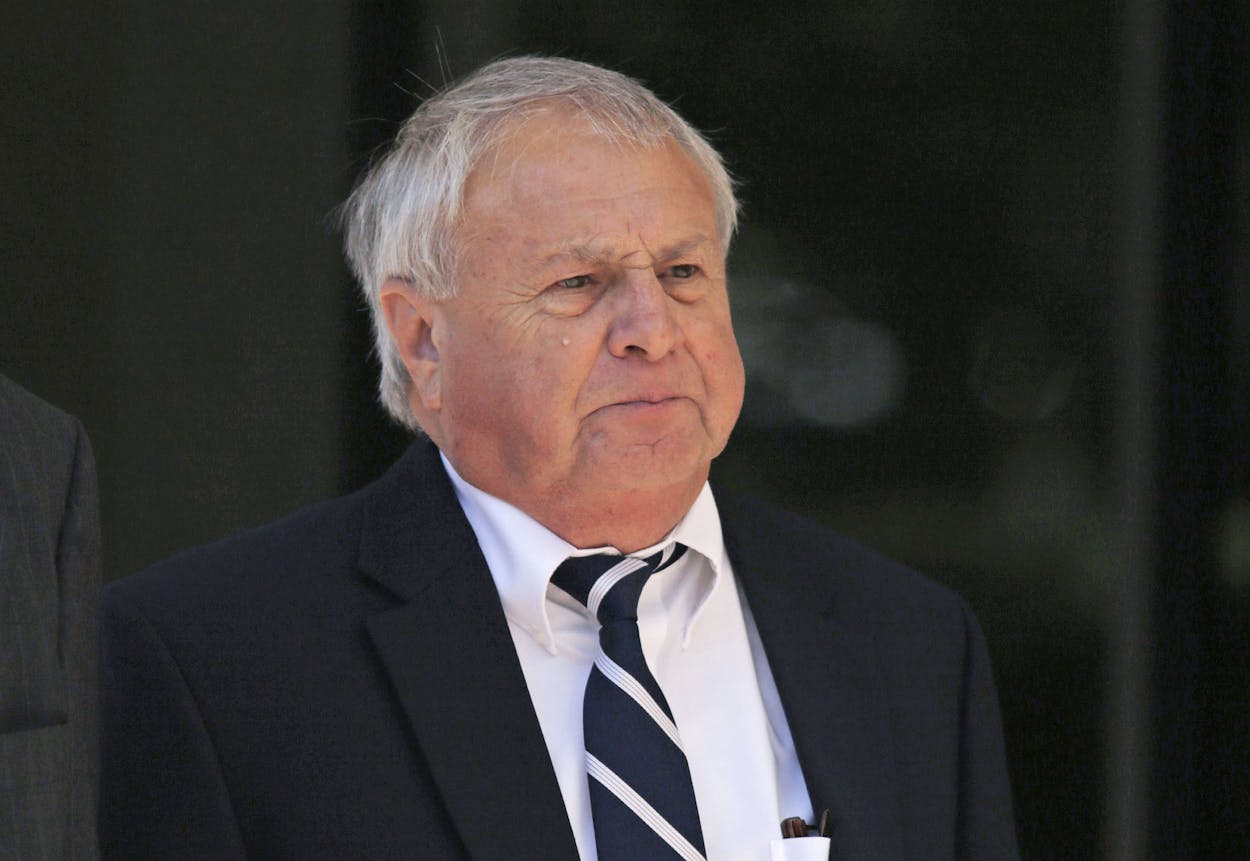Donald Vidrine, one of the two BP rig supervisors overseeing the Deepwater Horizon when the rig exploded in April 2010, died Saturday at his home in Baton Rouge, Louisiana after a three-year battle with cancer. He was 69.
Vidrine and his colleague, Bob Kaluza, were the focus of the government’s investigation into the offshore accident, which killed eleven workers and spilled millions of gallons of oil in the Gulf of Mexico. Prosecutors claimed that Vidrine misinterpreted a critical pressure test that led to the explosion, and he and Kaluza were initially charged with 22 felony manslaughter charges.
Those charges were later dropped, and Vidrine pleaded guilty to a single misdemeanor violation of the federal Clean Water Act. In April 2016, Vidrine was sentenced 10 months’ probation. Vidrine’s attorney, Bob Habans, said he was informed of his client’s death by Vidrine’s family Sunday evening.
Vidrine spent 40 years as an offshore supervisor on both shallow and deep-water wells with BP, most of it with BP and its predecessor companies. As a supervisor, Vidrine oversaw the work of rig operators like Transocean, which owned the Deepwater Horizon.
“Many of the engineers for major service companies who worked for Don on all the rigs prior to his transfer to Deepwater Horizon tell me he was the most conservative and risk adverse company man they had ever known,” said Lillian Espinoza-Gala, a researcher in Lafayette and a member of the Deepwater Horizon Study Group, which examined the root causes of the accident. “He was quiet and kind and soft spoken.”
As part of his plea deal with the government, Vidrine testified against Kaluza, the other rig supervisor working on Deepwater Horizon, at his colleague’s February 2016 trial. Kaluza was acquitted. In an earlier interview, Kaluza said he had no bitterness toward Vidrine, because the pressure from the government was immense. “Don was a very experienced, knowledgeable and conscientious deep water offshore Dolling supervisor that passed away far too soon,” Kaluza said after learning of Vidrine’s death. “He and I worked efficiently together for over one year offshore Gulf of Mexico.” Kaluza said he and Vidrine didn’t socialize outside of work, but they enjoyed working together. “I could see Don’s family was very important to him,” Kaluza said. “My sincere condolences to his family.”
Vidrine was the night supervisor on the rig, and the explosion occurred about three hours after his shift began. After the accident, Vidrine provided an account to BP investigators of the events leading up to the blowout, but he did not testify in the public hearings or civil trials surrounding the disaster, citing poor health.
BP’s internal investigation largely faulted Vidrine and Kaluza for the accident, but later investigations found the causes were more wide-ranging, and grew from a series of decisions in the months before the accident.
During the civil trials, rig workers said Vidrine seemed concerned by pressure-test results, but accepted the arguments from others that the well was secure. In his statement to BP investigators, Vidrine said he didn’t see a problem with the tests and ordered the crew to begin replacing heavy drilling mud—used to hold back to flow of oil and gas in the well—with seawater, one of the final steps in completing the drilling process. He discussed the test results with a BP drilling executive in Houston earlier in the evening, who didn’t raise any concerns to Vidrine about the results.
The lighter seawater failed to hold back the flow of hydrocarbons, which were under intense pressure, causing them to spill over onto the rig floor, where they were ignited by one of the rig’s generators, causing a series of explosions.
Last fall, Vidrine was portrayed by John Malkovich in the Peter Berg film Deepwater Horizon, which cast Vidrine as the solitary villain who pushed the project forward despite the concerns voiced by rig workers. Malkovich, who looks nothing like Vidrine, gave a hammy performance that ended with Vidrine showered with drilling mud as the accident unfolds. In reality, Vidrine was in his office on a different part of the rig at the time of the explosion and made it off the rig in a lifeboat.
As a the company man on duty, Vidrine technically was responsible for all decisions made on the rig. But in a complex operation like offshore drilling, it’s never that simple, said Kevin Lacy, who was BP’s vice president for Gulf of Mexico drilling before leaving in late 2009, just months before the disaster. “For them to fail, someone else has to fail too,” he said.
All four of the government’s prosecutions related to the Deepwater Horizon ended in acquittals or plea deals for lesser charges.
- More About:
- Energy







